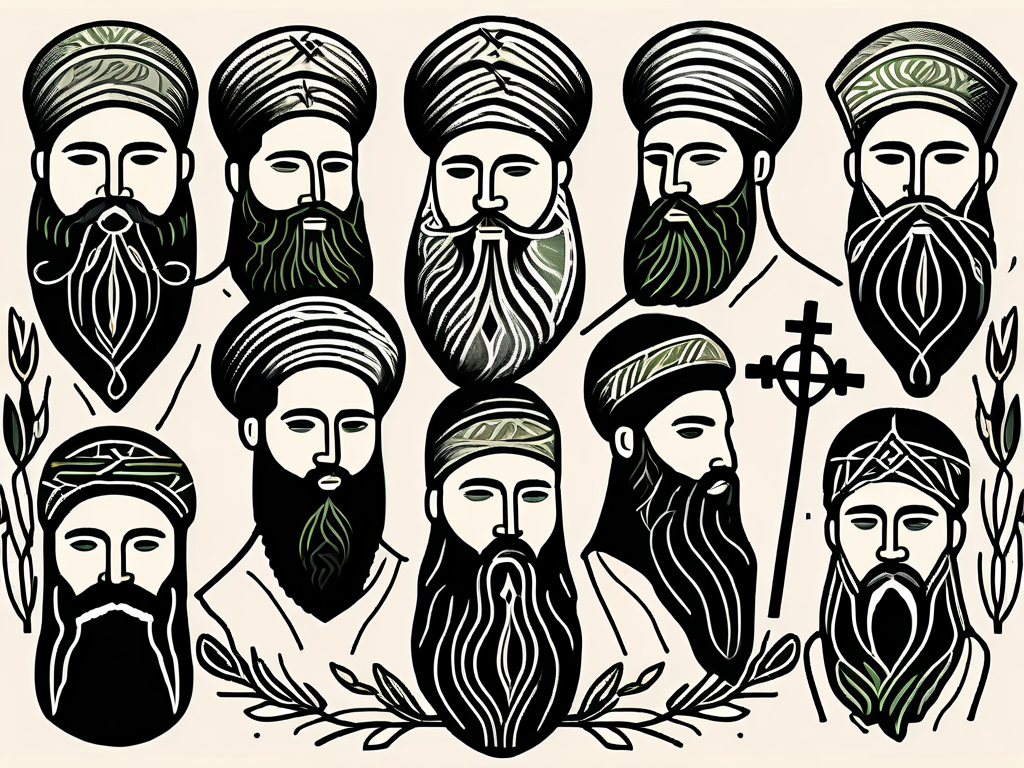Have you ever wondered what a beard symbolizes in the Bible? In this blog post, we will explore the significance of beards in biblical times and unravel the deeper meanings behind this cultural symbol. Understanding the symbolism of a beard in the Bible can provide us with insights into the values and beliefs of ancient civilizations, shedding light on the rich tapestry of religious history.
Delving into the meaning of a beard in the Bible not only enhances our knowledge of biblical texts but also helps us appreciate the cultural context in which these stories were written. By uncovering the symbolic significance of beards, we can gain a deeper understanding of the characters and events portrayed in the Bible, enriching our interpretation of these timeless narratives. Join us on this fascinating journey as we uncover the hidden meanings behind the beard as a symbol in the Bible.
The Symbolism of Beards in the Bible: Unveiling Their Spiritual Significance
In the Bible, a beard is often seen as a symbol of masculinity, wisdom, strength, and maturity. Throughout the Old and New Testaments, there are numerous references to beards and their significance.
In the Old Testament, the Israelites were commanded not to shave the sides of their heads or the edges of their beards as a sign of their devotion to God (Leviticus 19:27). This practice distinguished them from other nations and served as a symbol of their identity as God’s chosen people. The length and fullness of a man’s beard were seen as indicators of his maturity and status in society.
Moreover, in ancient cultures, including ancient Israel, a man’s beard was considered a symbol of virility and power. For example, when Samson’s hair was cut off in the story of Samson and Delilah, it symbolized the loss of his strength; similarly, cutting off a man’s beard was often seen as a way to emasculate him.
In the New Testament, we see references to beards as well. For instance, in the book of Matthew, Jesus talks about the hypocritical Pharisees who make a show of their fasting and prayer by disfiguring their faces to appear more pious. This likely refers to the practice of neglecting personal grooming, including shaving, to appear more devout.
Overall, the symbolism of a beard in the Bible can vary depending on the context. It can represent wisdom, authority, masculinity, strength, and even rebellion or shame in certain instances. Understanding the cultural and historical significance of beards in biblical times can shed light on the deeper meanings behind these symbolic references.
What is the spiritual significance of beards?
In the context of the Bible, beards are often seen as a symbol of masculinity, authority, and wisdom. Throughout the Scriptures, references to beards are used to indicate a man’s status or role within society. For example, in the Old Testament, the beard was considered a mark of honor and respect, and it was a common practice for men to not shave their beards as a sign of mourning or repentance.
Moreover, in the Bible, there are specific guidelines regarding beards, such as in Leviticus 19:27 which states, “Do not cut the hair at the sides of your head or clip off the edges of your beard.” This verse highlights the importance of maintaining natural facial hair as part of following God’s commandments.
Overall, beards in the Bible symbolize maturity, dignity, and authority, and they serve as a visual representation of a man’s connection to his faith and his adherence to the principles outlined in scripture.
What did a beard represent in the Bible?
In the Bible, a beard was often seen as a symbol of masculinity, wisdom, and dignity. It was considered a sign of maturity and respect, with many prominent figures in the Bible described as having beards, such as Abraham, Moses, and Jesus. The importance of beards can also be seen in passages such as Psalm 133:2, which states, “It is like the precious oil on the head, running down on the beard, on the beard of Aaron, running down on the collar of his robes.” This verse highlights the significance of the beard as a symbol of authority and blessing in biblical times.
What does a beard symbolize?
In the Bible, a beard can symbolize masculinity, wisdom, authority, and dignity. It is often associated with maturity and strength. In some cases, it can also represent a vow or commitment, as seen in the story of Samson who had to keep his beard unshaven as a sign of his Nazirite vow (Judges 16:17). Additionally, shaving or touching someone’s beard was considered a sign of disrespect and humiliation in ancient Hebrew culture, as mentioned in 2 Samuel 10:4-5. Overall, the presence or absence of a beard in biblical narratives can carry significant symbolic meaning.
Why did Jesus wear a beard?
In the Bible, the reason why Jesus wore a beard is not explicitly mentioned. However, it was a common practice among Jewish men during that time to have beards as a symbol of masculinity, wisdom, and religious devotion. Jesus was a Jew and would have followed the customs and traditions of his culture, including maintaining a beard. Additionally, in Isaiah 50:6, there is a reference to the Messiah having his beard plucked, which some interpret as a symbolic significance of Jesus wearing a beard. Overall, while the Bible does not provide a specific reason for Jesus wearing a beard, it can be understood within the cultural and religious context of the time.

